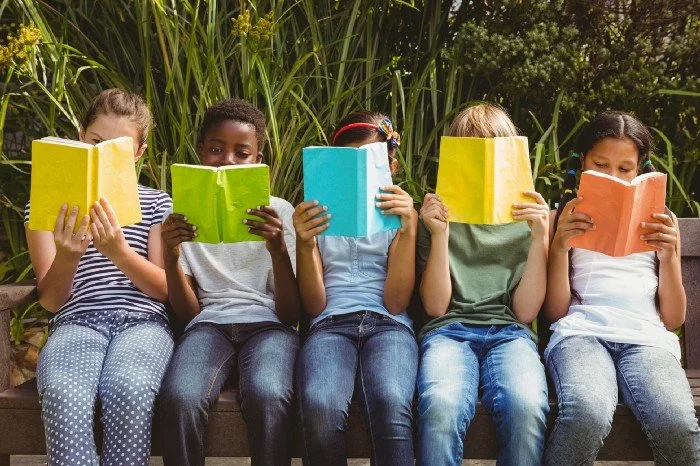Light Reading
In a recent focus group study, we heard repeatedly from kids that they don’t read much for fun. We were curious to learn if this group of kids was unique in their reading habits or if this was a broader trend among Generation Alpha. It didn’t take long to conclude that these kids were not an anomaly; kids today read much less for personal enjoyment than generations before them.
According to a study done by the National Assessment of Education Progress (NAEP), the amount of time kids spend reading for pleasure has dropped to its lowest point since the mid-1980s. In 2020, less than half of 9-year-olds surveyed indicated that they read for enjoyment daily, and 16% said that they never or hardly ever read for fun during their down time. While numbers for both boys and girls were on the decline, girls were more likely to read for personal enjoyment than boys, and younger kids reported reading more than older kids.
Poor literacy rates are a contributing factor: kids who struggle with reading are not likely to read for fun, and the evidence suggests that there are many kids struggling just to read. In 2019, the National Report Card showed that about two-thirds of US students were not reading on grade level. The pandemic then magnified this problem. On average, students in the US lost up to a half a year of literacy instruction during remote learning. Nationally, in the spring of 2021, reading scores on standardized tests dropped between 3 and 6 percentile points on every grade level.
It's no surprise that another contributing factor to the decline is the amount of time kids spend on screens. According to a study done by Common Sense Media in 2021, online media consumption in tweens and teens has grown 17% since the start of the pandemic. In 2021, tweens spent an average of 5 hours and 33 minutes per day online, an increase of 49 minutes from 2019. Activities such as gaming, watching videos and social media all contributed to that rise. The study also indicated that daily, 65% of 8-12-year-olds watch online videos, and 1 in 5 are on some form of social media.
According to Nat Malkus, the deputy director of education policy studies at the American Enterprise Institute “…. screens are wearing down the attention span that it takes to develop a sense of reading for pleasure.” Online reading such as that on social media posts is designed specifically to be absorbed quickly and easily, and researchers have found that reading this way can develop bad habits that decrease comprehension.
The downward trajectory is of concern because reading is so important to the holistic development of the child. Reading not only benefits kids academically but fosters their social and emotional skills as well. Kids who read for pleasure daily tend to have better vocabulary, spelling and math skills and generally score higher on assessments. Additionally, according to Kids Read Now, kids who read for fun have more compassion and better decision-making and social skills. Reading allows kids to see other perspectives and creates opportunities for self-reflection. And when kids read with their parents, it can be a conduit for discussions about issues and subjects like diversity.
There are things that can be done practically to improve reading skills and help kids foster a love of reading and literature. Adults as reading role models are very important. Kids who see their parents read can be inspired to do some reading of their own. Another way to get kids to fall in love with literature is by reading books aloud to them. This is especially important for kids who are struggling readers since it gives them access to literature that they are not able to read themselves and can even serve a motivator for independent reading. Finally, setting aside time for reading at home, giving kids access to the books they want to read, and limiting screen time can all increase literacy and comprehension skills, foster lifelong habits, and create a positive relationship with reading.

